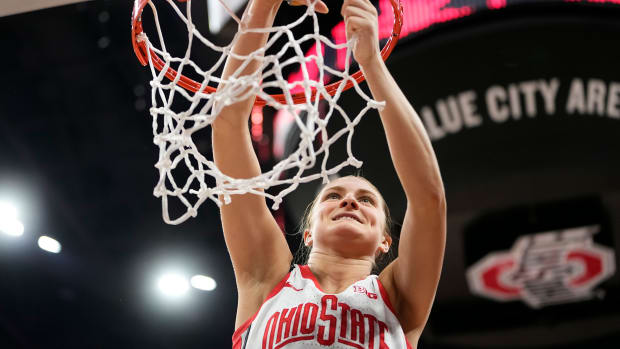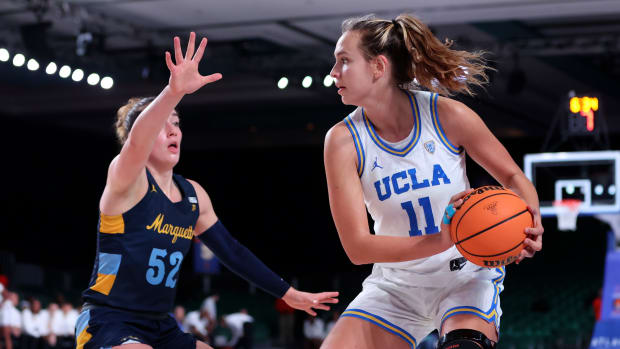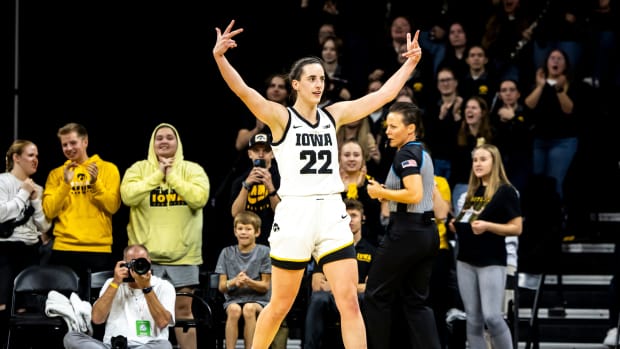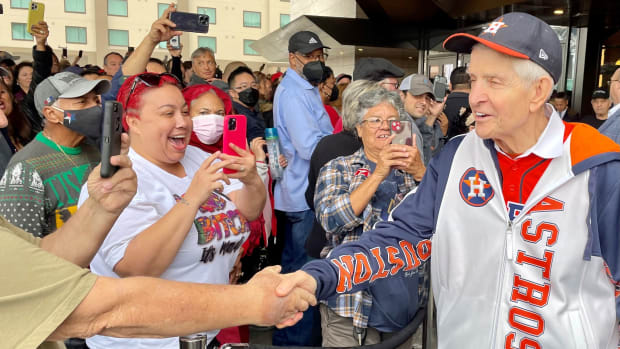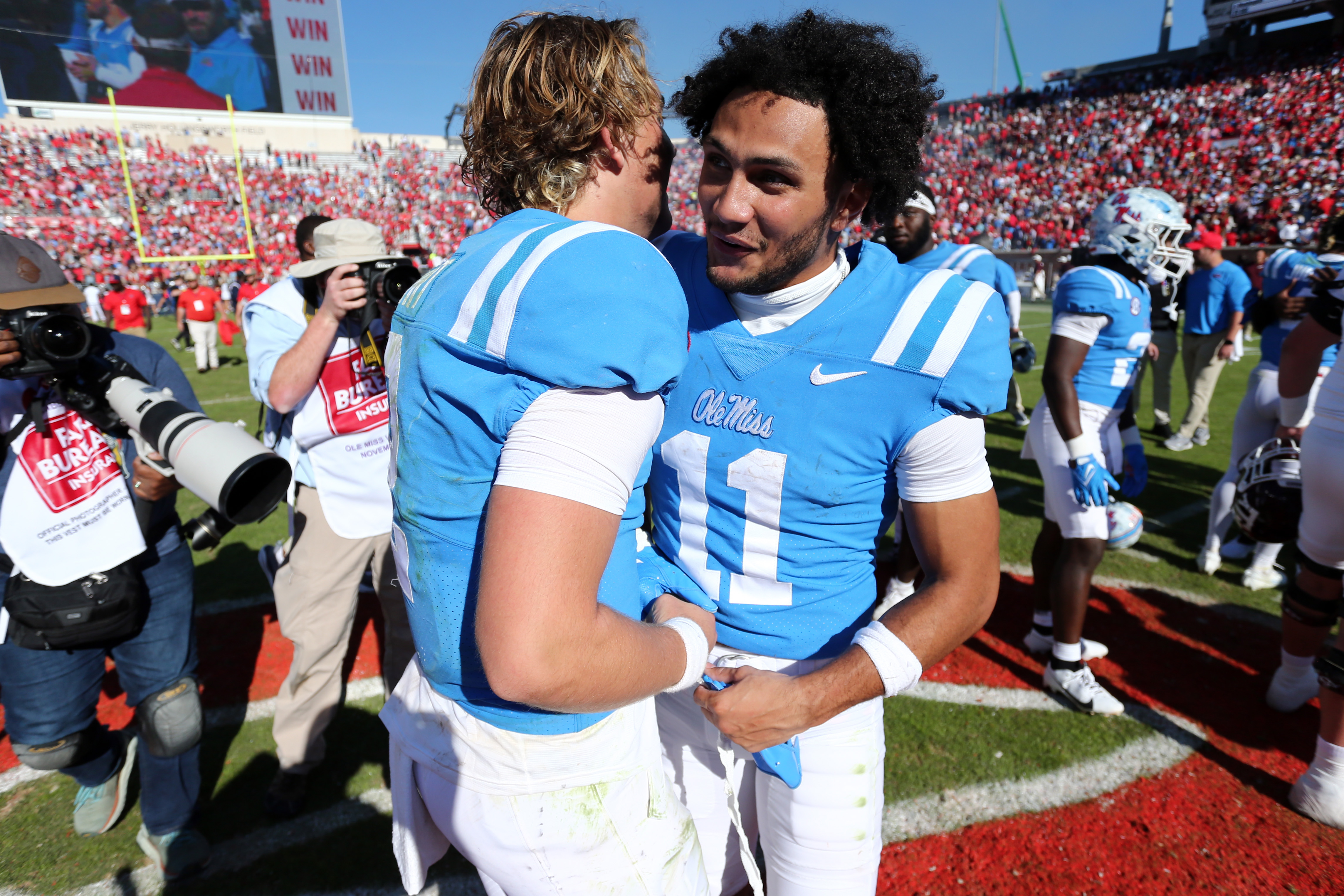
Ole Miss Athletes Use NIL Opportunity to Combat Opioid Epidemic
On college campuses around the country student-athletes are admired. Commended for their dedication, work-ethic, and immense talents, those who earn the status of varsity athlete are often revered by their on-campus peers and looked up to as role models by their community at-large.
With this elevated status comes a heightened amount of responsibility. Student-athletes’ actions are not singular, every decision they make reflects not only onto themselves, but to their teams, their athletic departments, and their universities. While this pressure can often be hard to bear, especially for those whose athletic talents bring high visibility at the local and national levels, student-athletes at Ole Miss have taken their role-model status and used it to benefit the greater good of the Oxford community.
Six Ole Miss athletes, highlighted by standout wide receiver Jordan Watkins, have partnered with HarborPath to star in a campaign that aims to spread awareness on the dangers of fentanyl-laced pills and highlight the current resources available to students at Ole Miss to combat the Opioid Epidemic.
The campaign, facilitated by the Grove Collective, one of the most prolific NIL Collectives in the nation, will feature three male athletes and three female athletes: some from the Magnolia State, and others from around the country. Outside of Watkins, one player from the men’s basketball, women’s basketball, baseball, volleyball, and softball teams will take part in the campaign. The first run of the social media promotions will begin later this month.
HarborPath is a partner of the William Magee Center at Ole Miss where they provide naloxone (often marketed as Narcan) to students at no charge, with no questions asked. Outside of their work at the university, HarborPath provides life-saving medication at no-cost to those in need in twenty-four states. While the NIL based campaign at Ole Miss is the first of its kind from HarborPath, the non-profit has plans to expand their NIL based awareness to other colleges in Mississippi and beyond.
Over the past decade, the U.S. has witnessed a sharp rise in overdose rates and overdose deaths in young adults. Recent data from the CDC indicates that 75% of drug deaths involve opioids. Young people often fall victim to fentanyl-laced counterfeit pills, and fentanyl overdose is now the leading cause of death for young people in the US. Now, more than ever, it is imperative to find new ways to fight what could be the single biggest threat to Americans.
With college age people being such a high-risk demographic for opioid abuse, leveraging new NIL policy to create a campaign specially targeted for students at Ole Miss is genius. Through the increased visibility of HarborPath’s resources on campus, it is no exaggeration to say that this NIL partnership has the power to save lives.
A statement from Ken Trogdon, President of HarborPath, highlights how utilizing the status of student-athletes is an effective tool to promote awareness to student-body at large:
“HarborPath is constantly searching for new opportunities to meet unmet needs and provide life-saving resources. Overdose data indicates that hidden fentanyl, counterfeit pills, and addiction are harming young people and college students more than ever before. In fact, fentanyl is now the leading cause of death among young adults. The University of Mississippi has terrific programs on campus to support their students, including the William Magee Center and free Narcan. This campaign is an opportunity to partner with student-athletes on spreading awareness of these resources. We believe that Ole Miss students receiving information on life-saving resources from their student-athlete peers will be an impactful way to raise awareness and ultimately save lives.”
Strong appreciation for this partnership has been duly noted by prominent figures in Mississippi. Lynn Fitch, Mississippi Attorney General, has praised those behind the partnership, as well as the individual student-athletes. Fitch’s “One Pill Can Kill” initiative partners with and offers complementary services to HarborPath’s Narcan program, including additional educational resources and free fentanyl testing strips on college campuses.
In a full statement from the Mississippi Attorney General: “Counterfeit pills are dangerous and too easily available. My One Pill Can Kill initiative aims to empower Mississippians to stay safe, and peers influencing peers is the most powerful tool we have to combat this deadly fentanyl crisis. I am grateful for this partnership, and I am particularly proud of these student athletes for stepping up and using their platform and voice to save lives. I am in awe at their leadership and maturity."
In the past two and a half years, NIL has proven to have immense benefits to student-athletes and their communities. Student-athletes have gained skills in brand building, entrepreneurship, contract literacy, and personal finance all while building wealth. Communities have been impacted by charitable programs, new influencers to market their businesses, and a closer relationship with their favourite student-athletes.
In Oxford, NIL is transcending all these benefits. Say what you will about NIL ruining the sanctity of college athletics; and while admittedly a morbid thought, the deal between Ole Miss athletes and HarborPath may very well be the reason a family does not have to experience the anguish of burying a loved one.


